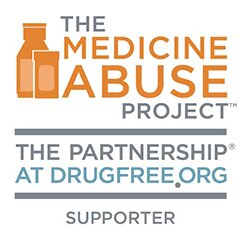| Medication: |
Ivermectin (Stromectol) |
| Dosage: |
12 mg, 6 mg, 3 mg |
| Price: |
from $1.75 per pill |
| How to Buy |
Get Started Now |
Ivermectin (Stromectol)
Ivermectin is a drug that copes with many parasitic diseases. It is usually used against scabies, lice, and other nematodes in humans and animals. Can be used internally or externally, depending on the severity and type of disease.
The discovery of Ivermectin occurred in the 70s of the last century, and it began to be used in the early 80s. It is now on the list of drugs recommended by WHO.
Since then, it has also been used for strongyloidiasis, and it has also received a ban on use for people with HIV and weakened immune systems. After all, a whole international group of scientists from different parts of the world worked on medicine.
And its active substance has become a real breakthrough in science, which, according to many experts, can not only treat many diseases but also completely erase them from the list of existing ones.
Ivermectin is suitable for treatment for many people and animals, but such a strong effect requires a strict course and consideration of many points that are worth knowing before use.
Indications for use
The main feature of Ivermectin is that it is made on the basis of avermectins. They are waste products of the special bacteria Streptomyces avermitilis. They were first obtained in one of the Japanese scientific laboratories and were first used as insecticides in ant baits.
However, later, they were successfully used in medicine in universal preparations for humans and animals: in Ivermectin, as well as Doramectin, Abamectin, and other veterinary products. Ivermectin, which has different names for different types of animals, can be used to treat many pets.
Including horses, ruminants, pigs, cows, chickens, and others, which also have the risk of not only picking up parasites but also infecting people with them.
Ivermectin is used for most parasitic worms because the active substance has a wide range of applications. Also suitable for combating scabies and lice. Successfully fights against roundworms, arachnids, and insects, but not against tapeworms and trematodes.
It is used for the following diseases:
- Strongyloidiasis.
- Ascariasis.
- Trichocephalosis.
- Enterobiasis.
- Onchocerciasis.
- Strongyloidiasis of the gastrointestinal tract.
- Wuchereriosis.
- Trichocephalosis.
- Filariasis.
- Tick scabies.
- Demodectic mange.
- Rosacea.
The active substance affects the permeability of the worm's membranes. This leads to paralysis, due to which he loses the ability to move and dies. The drug affects infection in any area of the body because parasites can be found in the lungs and intestinal tract, even under the skin. It affects adults, larvae, and eggs, leaving no chance for parasites. This will also help avoid re-infection and relapse.
When used, the active substance is absorbed into the intestinal mucosa, subject to oral administration. After 4 hours, it will be in maximum concentration. The half-life will be from 12 to 16 hours, mainly leaving the body in the feces.
Contraindications
There is no doubt that such a powerful drug, which requires strict adherence to dosages, will have no less strict contraindications. The use of the medicine is not recommended for the following groups of patients:
- children under 5 years old;
- people weighing up to 15 kilograms;
- nursing mothers;
- suffering from kidney or liver failure;
- pregnant women;
- having allergic reactions;
- with meningitis and asthma;
- with a weakened immune system.
Considering these contraindications, you should first consult with a doctor who can prescribe Ivermectin after diagnosis. For children, it is prescribed strictly after tests and by a doctor because side effects occur.
Admission guide
More often, people take Ivermectin orally. When prescribing this drug, a doctor must first conduct a diagnosis and make sure that it will not cause side effects. After this, the dosage is calculated, taking into account the severity of the disease and the patient’s weight.
The number of dosages also depends on the severity of the disease because sometimes, a single dose is enough. When more doses are required, it is important to maintain an interval of a week or two between them.
Side effects
Among humans and animals, side effects are more common in animals. This happens due to neurotoxicity, that is, depression of the nervous system. Animals tolerate them more difficult, so veterinarians prescribe Ivermectin only in cases where no other analogs are suitable.
In addition, it is necessary to provide sick animals with special living conditions while they are being treated in order for the course to be successful. Typical for humans:
- feeling of drowsiness;
- dizziness and headaches;
- weakness, poor health;
- fainting;
- poor concentration;
- enlarged lymph nodes.
During the course of treatment, some patients have to be reminded that drinking alcoholic beverages is excluded. It is also worth limiting physical activity and even creating a comfortable, stress-free environment on an outpatient basis.
It is important to drink enough water and not to overheat or get too cold. Treatment of a parasitic disease requires taking care of your own body because drugs have a strong effect on it, and additional stress will only interfere.
The drug increases the level of warfarin in the blood, so simultaneous use with other medications should be avoided. The attending physician will take care of this. You should also be careful with folk recipes that can be found on the Internet. Ivermectin is a too strong drug, so the use of herbs can, at best, cause temporary illness and allergic reactions.





